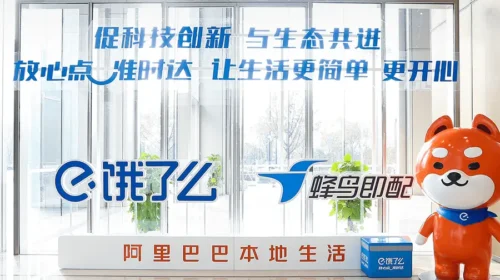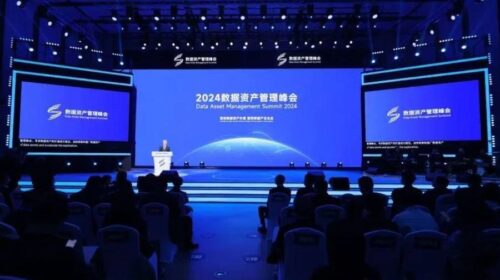Fresh Fines for Tech Giants: Another Regulatory Storm or Just a Flurry?

Chinese tech titans including Alibaba, Tencent and Bilibili have been fined for failing to disclose M&A dealings, sparking market fears of a return to tough regulation
Key Takeaways:
- The Chinese market regulation authority listed 28 M&A deals that it said broke disclosure rules, slapping fines on a host of tech companies such as Alibaba, Tencent and Bilibili
- But market analysts say the risk of a renewed clampdown on the tech sector is limited in the face of a slowing economy
By Fai Pui
Worries about regulatory risk have once again rattled China’s tech sector, just as the market thought policy makers were loosening their grip on the online economy.
Leading tech companies were suddenly slapped with fines earlier this month for failing to properly report past M&A transactions, casting doubt on any assumption that the worst of a regulatory storm had passed. The penalties were relatively small but were enough to stoke concern about a return to the crackdown that shook the market last year.
By conventional wisdom, this should have been the season for a market rally. A pattern dating from the 1980s dictates that investors in Hong Kong stocks “sell in May and go away”, before powering a market recovery in July. But this year, the market followed a different trajectory.
The month of May brought plenty of positive news to lift investors’ spirits. Didi was reported to be poised to return to app stores, there was talk of Ant Group planning a renewed IPO bid and Shenzhen authorities launched a campaign to stimulate spending by distributing vouchers through online titans Meituan (3690.HK) and JD.com (JD.US; 9618.HK).
As a result, leading tech stocks such as Alibaba (BABA.US; 9988.HK), JD, Meituan, Tencent (0700.HK) and Netease (NTES.US; 9999.HK) rallied by 23% to 54% from their lows in May. Meanwhile, the Hang Seng Index soared 17% from 19,178 points in early May to 22,449 points in late June, belying the bad luck associated with May and June.
But just when tech stocks looked set for a strong July, China’s anti-trust campaign suddenly returned to the headlines and gave investors a fright.
On 10 July, the Chinese State Administration for Market Regulation released a letter on 28 cases in which companies were judged to have made violations, earning administrative penalties. Among them, 13 cases related to Tencent’s and five to Alibaba’s violation of anti-monopoly rules on the disclosure of transactions. Others involved Didi, Bilibili (BILI.US; 9626.HK), Ping An Health, Lenovo Group (0992.HK) and Weibo Corp. (9898.HK; WB.US). But unlike previous cases involving fines in the hundreds of millions of yuan, the penalty for each individual case was a mere 500,000 yuan ($74,000).
Neglecting to report on M&A activity
According to the authorities, Alibaba was fined 2.5 million yuan for failing to report deals including China Business Network, Youku Tudou and Zhuyun Group. Fellow tech leader Tencent was fined 6 million yuan in relation to 12 transactions including companies such as Haomaile, QZing Technology and Xiaobang Guihua.
News of the fines triggered a summer meltdown for tech stocks. Alibaba tumbled more than 15% in the past week, while Tencent, Meituan and Bilibili suffered losses in a range of nearly 7% to 17% of their market value.
The market was badly burned before when, from late 2020, China cracked down on an ebullient and expansionist tech industry, launching a campaign against anti-competitive practices and a spate of investigations into corporate disclosures and cybersecurity.
But earlier this year, investors believed the Chinese government was now softening its attitude to the tech giants to help drive the economy’s recovery from the effects of Covid. The latest fines might fuel concerns that policymakers are having second thoughts about that, adding to other risk factors for the market, said Kenny Wen, head of investment strategy at KGI Asia.
“A wide range of factors are putting investors off: the possible return of the regulatory storm, the drastic tightening of monetary policy in the U.S. to tame inflation, the huge sell-offs of Tencent shares by its major South African shareholders, as well as uncertainties surrounding the Covid-19 pandemic in China,” Wen said.
But on closer inspection, administrative fines from the anti-monopoly agency may not signal a fresh wave of regulation hampering future deal-making.
All 28 cases were past transactions that should have been disclosed under anti-trust rules. The markets authority expressed confidence that companies would become more aware of disclosure requirements as anti-trust enforcement becomes routine. Companies would review past transactions and report any disclosure failures voluntarily, it said, promising to release judgment letters on other cases.
Low risk of regulatory tightening
The wording could be interpreted as restating an existing stance. That being the case, market analysts do not see a high risk of a new regulatory storm rolling in.
“It is well within reason that the authority announced fines that resulted from intense investigative efforts last year. And the slowdown of the broader economy also makes tougher regulations less likely,” said KGI Asia’s Wen.
Evidence is mounting that China’s economy is slowing sharply, hit by successive urban lockdowns and global trade disruptions. And the authorities are still sending signals that they want to let the online industry generate much-needed growth.
In late May, the Chinese State Council again stressed the importance of ensuring the healthy and orderly development of the platform economy. Wang Yiming, a member of the monetary policy committee of the Chinese central bank and former deputy head of the Development Research Center under the State Council, told a forum that China should take consistent steps to expand domestic demand, and accelerate digitization and the transition to smart technologies. He also highlighted the importance of introducing policy measures that are conducive to the sustainable and sound development of the private sector and the platform economy, as well as setting clear expectations for the market.
Regulatory risks aside, Tencent and Alibaba face other challenges. Tencent’s South African investor, Naspers, is ready to sell down its stake in the Chinese tech giant over an unspecified period to support its share price. Tencent’s online gaming revenue will be dented by government curbs on activity by teenage players, who are only allowed to log on between 8 pm and 9 pm From Friday through Sunday nights during the summer holidays.
Alibaba faces even greater troubles. According to the Wall Street Journal, the Shanghai authorities just met with executives of Ali Cloud’s computing department over a breach of a police database that it hosted. The report sent the stock tumbling towards HK$100.
Wen said the Ali Cloud incident was a cause for concern, advising investors to watch closely to see if it might herald closer scrutiny of the whole cloud sector.
“But it is our estimate that the impact on tech stocks in other segments is unlikely to be huge. And investors do not have to be too concerned about policy risks,” Wen said.
To subscribe to Bamboo Works free weekly newsletter, click here






